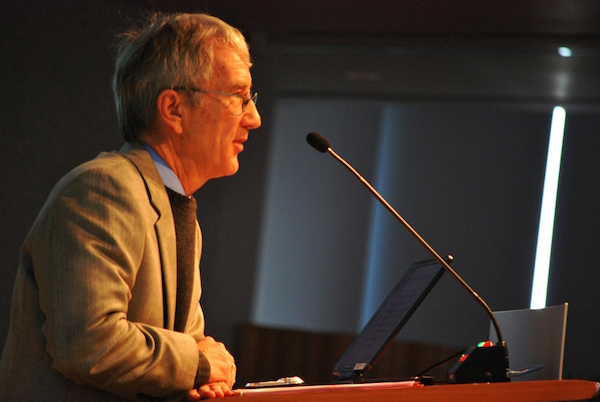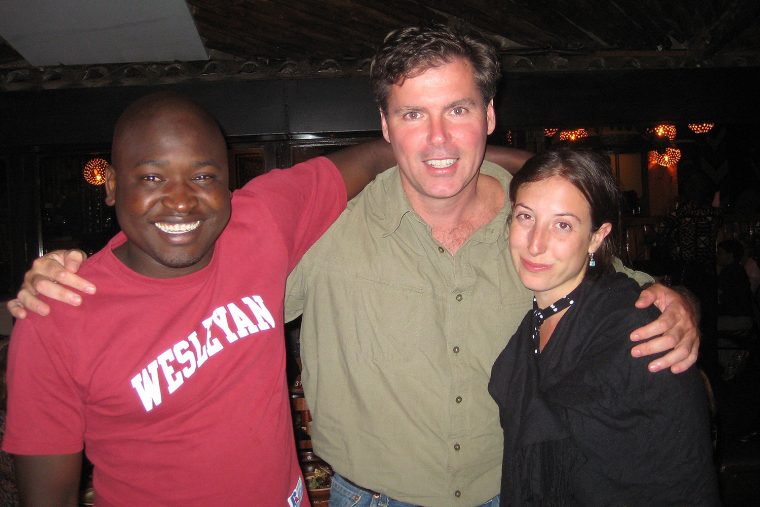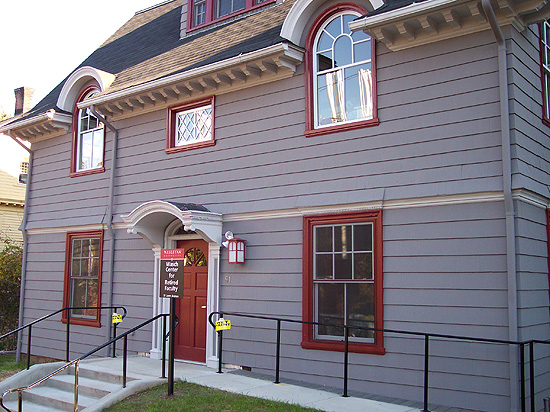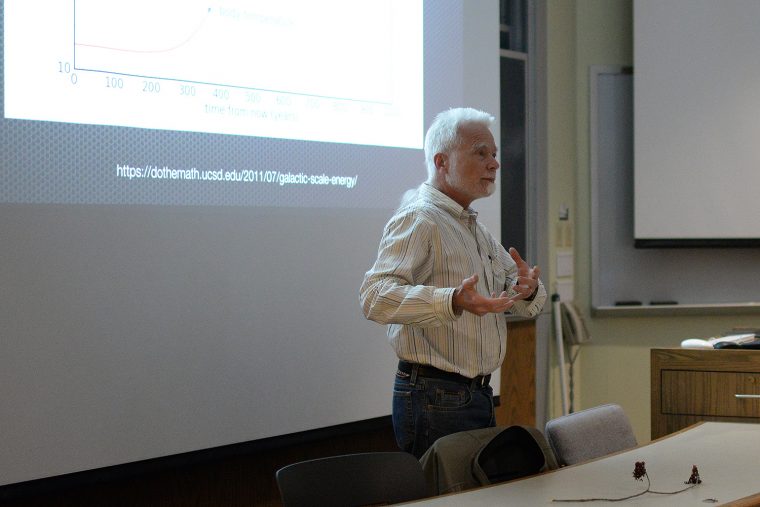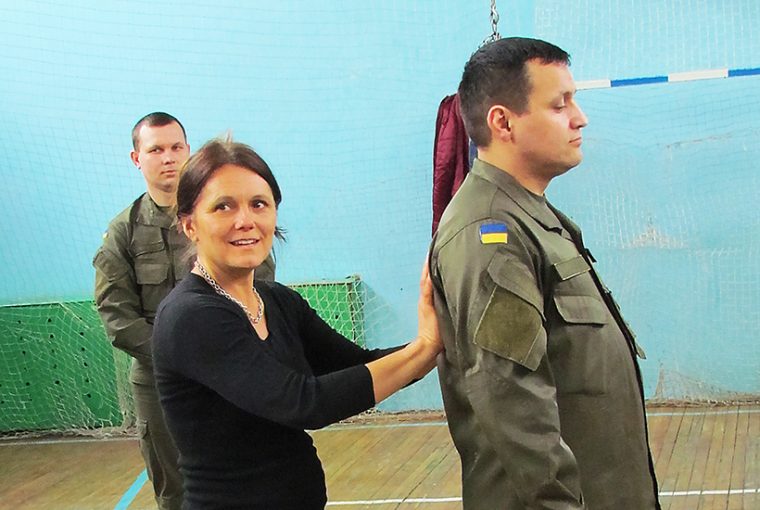Gary Yohe, the Huffington Foundation Professor of Economics and Environmental Studies, rebuts an op-ed on Fox News in which U.S. Senator Rand Paul argues for the United States to withdraw from the Paris Climate Agreement. Writing on the site Climate Feedback, Yohe explains that Paul's opinion relies on the flawed claim that the agreement would do little to slow climate change and would cost American jobs. Yohe breaks down Paul's assertions regarding anticipated global warming—both with and without the agreement—as well as the Senator's predictions that the agreement would cost the country 6.5 million in lost jobs and $3 trillion in lost GDP. Yohe contends…
In March, during Wesleyan's spring break, Associate Professor of Molecular Biology and Biochemistry Michael McAlear took a trip to visit and catch up with three alumni whom he’d known when they were undergraduates, just beginning the nonprofits for which they are now known. McAlear doesn’t see them often: they live and work in Africa. All three had received Wesleyan's Christopher Brodigan Award in their senior year, for research or work in Africa. McAlear’s first stop was in Kibera, the largest slum in Kenya, and home of SHOFCO, Shining Hope for Community, the nonprofit begun by Jessica ’09 and Kennedy ’12 Odede. Linking…
Researchers affiliated with the Wesleyan Media Project wrote in The Washington Post on May 5 on what "Americans will really dislike about the House 'Trumpcare' bill." The article, authored by Associate Professor of Government Erika Franklin Fowler, Courtney Laermer '17, Wesleyan Media Project Project Manager Laura Baum, and Sarah Gollust '01, is based on data from Laermer's senior thesis. House Republicans voted on May 4 to repeal and replace the Affordable Care Act (ACA) with their alternative plan, the American Health Care Act (AHCA). The authors argue that this vote is likely to cause headaches for Republicans due to several unpopular changes it makes to the…
The annual StemCONN conference, held April 27 in New Haven, made clear that Connecticut’s commitment to stem cell research has helped the state become a national leader in this burgeoning area of research and commercial development. Wesleyan is one of the founders of the StemCONN conference, along with Yale and the University of Connecticut. This year marks the 6th StemCONN conference, an event that brings together more than 500 individuals from academic institutions, bioscience industry, and government. “Stem cell research continues to be an exciting and fast-paced field with new discoveries fueling prospects for new therapies based on regenerative medicine…
Starting next fall, the Wasch Center for Retired Faculty will begin a two-year pilot program, "Wesleyan Emeritus College," to encourage thesis tutorials between undergraduates and retired faculty members. During this pilot, 11 retired faculty participants have been specifically approved to administer tutorials for credit by their parent departments. Richard Elphick, professor of history, emeritus, taught at Wesleyan from 1972 to 2015. His interests are African history, comparative imperialism, revolutions, theory of history, and the history of Christianity. “I would be interested in supervising theses focusing on the following areas: History of Christianity, Africa (especially South Africa), imperialism, World War I and II,…
Professor of Theater Ron Jenkins was a guest on the BBC program "Sunday" to discuss his new play, "Islands: The Lost History of the Treaty That Changed the World." The play, commemorating the 350th anniversary of the Treaty of Breda in which the Dutch ceded Manhattan in exchange for the tiny spice island of Rhun, premiered April 21 and 22 at Wesleyan's Center for the Arts. Jenkins' interview begins about four-and-a-half minutes in. Or, on the BBC page, scroll down and select the "Islands" chapter. "We're performing the actual text of the 1667 Treaty of Breda. In this treaty, if you look closely at the words, you'll…
Wesleyan co-authors published a paper titled “The Stories Tryptophans Tell: Exploring Protein Dynamics of Heptosyltransferase I from Escherichia coli” in the January 2017 issue of Biochemistry. The co-authors include chemistry graduate student Joy Cote; alumni Zarek Siegel ’16 and Daniel Czyzyk, PhD '15; and faculty Erika Taylor, associate professor of chemistry; Ishita Mukerji, the Fisk Professor of Natural Science, professor of molecular biology and biochemistry. Their paper investigates the intrinsic properties of Tryptophan amino acids found within the protein, Heptosyltransferase I, to understand the ways this protein moves during catalysis. Understanding the movement of this protein is an important step in developing…
Tushar Irani, associate professor of philosophy, associate professor of letters, recently published an essay titled “What is good rhetoric?” for Aeon, a digital magazine for culture and ideas. Related to his current book, Plato on the Value of Philosophy, the essay calls on the public to consider the civic good that rhetoric serves in democratic politics, and the effect it may have on our ability to engage in independent thought. The essay discusses the difference between good and bad political rhetoric. By drawing on Plato’s understanding of persuasive speech, Irani draws a distinction between flattering rhetoric and “self-moving” rhetoric. The…
Professor of Government Giulio Gallarotti was a guest recently on "Best of the Valley/ Shore" on WLIS/WMRD to discuss "Current Challenges of American Foreign Policy." "Our economy is doing well, the stock market is strong. The Fed's been talking about raising interest rates, that's how well we're doing. And that hasn't happened in a long, long time," said Gallarotti by way of introduction. "There's a lot going on all over the world and Americans are involved all over the world because we're a global power." On recent tensions with Russia, he said: "I think it's always been a kabuki dance, even at…
Associate Professor of History Erik Grimmer-Solem presented a talk, "The Wehrmacht Past, the Bundeswehr, and the Politics of Remembrance in Contemporary Germany," at the meeting of the Connecticut Academy of Arts and Sciences (CAAS), April 12. Grimmer-Solem also is associate professor of German studies and a tutor in the College of Social Sciences. His expertise is in modern German history with specializations in economic history, the history of economic thought, and the history of social reform. He has also developed research interests in German imperialism, German-Japanese relations before 1918, and Germany in the two world wars. Grimmer-Solem discussed his research, which uncovered…
Wesleyan Professor of Dance and Environmental Studies Katja Kolcio traveled again to Ukraine in April, this time to work with soldiers and psychologists in the National Guard. It was her third trip to the region to teach somatic practices to those undergoing the stress of political conflict, displacement, and combat. Somatics are “mind-body practices that combine physical activity and motion with deep reflection,” she explained in “Somatics and Political Change: Ukraine’s Revolution of Dignity,” (Contact Quarterly, summer/fall 2016), detailing her first trip to the region after Russia invaded Ukraine in 2014. In June 2015 she had been invited to lead…


